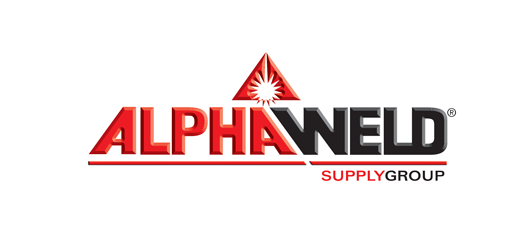Shop Now
- Welding Consumables
- Welding Torches & Torch Spares
- Welding Machines
- Welding Machine Spare Parts & Accessories
- Welding Fume Extraction Equipment
- Gas Welding Equipment
- Welding Abrasives
-
Welding Safety Equipment
- Welding Helmets
-
Welding Helmet Spares
- Speedglas Spares
- Betaweld Spares
- Cigweld Spare Parts & Accessories
- Flip Front Helmet Spares
- Jackson Spares & Accessories
- Lincoln Electric Spare Parts & Accessories
- Miller Spares & Accessories
- RPB Spares
- Servore Spares
- Unimig Spare Parts & Accessories
- Weldclass Spares & Accessories
- Miscellaneous Helmet Lens
- Welding Gloves
- Protective Workwear
- Welding Blankets
- Welding Screens & Curtains
- Ear Protection
- Eye Protection
- Face Protection
- Hand Protection
- Head Protection
- Respiratory Protection
- Sun Protection
- Hydration Products
- Fire Blankets
- Prestart Books
- Safety Signage
- Safety Tags
- Welding Accessories
- Pipe Welding Equipment
- Air & Power Tools
- Cutting & Drilling
- Gift Cards
-
Hire
- Hire Equipment
- Hire Heating Equipment
- Hire Degausing Equipment
- Hire a Welding Positioner
- Hire a Turning Roller
- Hire a Diesel Welder
- Hire a Wirefeeder
- Hire a Multi-Process Welder
- Hire Accessories
- Hire a MIG Welder
- Hire a TIG Welder
- Hire a Stick Welder
- Hire a Plasma Cutter
- Hire a Weld Cleaner
- Hire a Stud Welder
Hardfacing Explained - Part II
Types of Hardfacing Wires and Electrodes
Hardfacing Abrasion Wires
Hardfacing Abrasion Wires are used to provide increased resistance to areas subject to abrasive mineral wear. They provide a very effective hard protective coatings for heavy duty machinery digging and some are capable to high temperatures but generally should only be subject to light impact stresses due to their hardness factor.
Typical applications include ground engaging and mining equipment having augers, buckets, draglines or chains and dredging equipment.
See products: https://bit.ly/2Xa56fQ
Hardfacing Impact Wires
Hardfacing Impact Wires are welding wires or electrodes are used for giving increased protection of parts that are exposed to pulverising stresses and high abrasion under pressure. Suited to machinery parts that are exposed to high abrasive wear in a high impact environment
Can be used in certain applications of metal to metal situations where a high degree of invasive dust or sand is present such as pulleys or drums where friction with sand or minerals are primary wear factors.
Typical applications are include hammers, crusher rollers, blowbars, screws, bucket teeth and hardbanding.
See products: https://bit.ly/2T6Vsvr
Hardfacing Thermal Spray Wires
Used for surfacing panels and superheater and boiler components as well as for in repair of machinery components. The process involves feeding the wire with oxy/fuel flame or an electrical current reduce to a molten state then applying it to the base material using the discharge of the flame or compressed air. Can be used as a hard chromium plating alternative.
Provides abrasion protection and corrosion resistance for parts encountered in the chemical industry, petro chemical industry and for off-shore applications such as drill-pipe tool joints, shafts etc where high strength, non chipping bonds are required
Typical applications are for Processing machinery, Chemical industry, Augers, Conveyer Screws, and Rubber Mixers.
See products: https://bit.ly/2It1Bha
Hardfacing Tungsten Carbide Wires
These wires are generally an open arc tungsten carbide filled wire where extreme abrasive wear combined with corrosion is encountered. Tungsten carbide being one of the hardest materials in existence and substantially harder than titanium provides very effective protection. The tungsten carbide fill in the wire can be combined with other elements such as Nickel, Boron or Silicon for different applications to provide for high levels of abrasion resistance and are also highly resistant to corrosive media, acids and alkalis. The wires can feature a self fluxing characteristic that will produce a slag free, smooth surface.
Application can oft be very demanding involving preheating of base material and is sensitive to several welding parameters such as stickout, low voltage and current settings. The area to be hard-faced should be free of rust, scale, grease or other dirt as well. Care is also needed in the process to preserve the integrity of the tungsten carbides and the base material.
Some tungsten carbide wires are manufactured to suit applications where low input temperature are required such as cast or heat sensitive metals.
Mostly used for hard-facing and repairing mining, excavation or earth moving tools and parts that are exposed to the extreme wear.
See products: https://bit.ly/2GF8wCb
Hardfacing Work Hardening Wires
These are for Austenitic or Martensitic alloys which include work-hardening steels, such as manganese and stainless. This groups properties are generally soft when welded and hardens only after the weld metal is worked. They have high impact properties, good heat and thermal shock resistance and moderate abrasion resistance and particularly good for metal to metal wear. The stainless steel family is good for corrosion resistance. You can apply martensitic and austenitic products in unlimited layers unless the manufacturer specifies otherwise.
Applications include joining for joining dissimilar and difficult to weld steels, buffer layers, impact loaded parts. Can be in some situations suitable for ductile buffer layers.
See products: https://bit.ly/2XgSL9S
Conclusion
Remember that for any successful hardfacing outcome there is never any one product that suits all application. There are many other techniques products available for the application of hardfacing throughout the globe that are not discussed in this article.
Here at Alphaweld Supply Group we have a highly competent industry trained team to assist and call upon for experienced technical expertise and a large range of specialist hardfacing products from an extensive global supply chain to suit any hardfacing application. Call us today on +61 08 9456 8000.
Hardfacing product overview: https://bit.ly/2IstohZ


